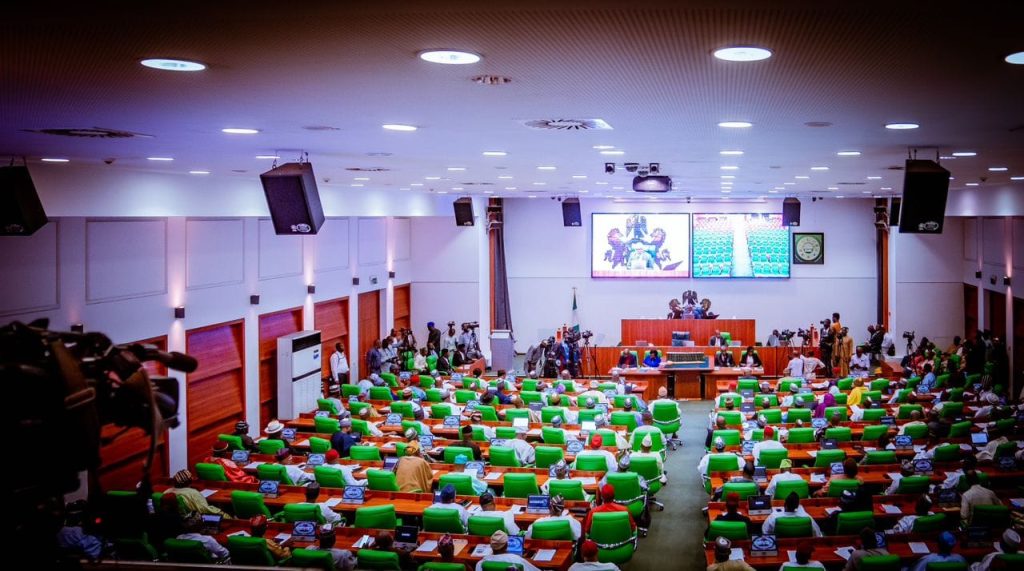The Nigerian maritime sector is poised for a significant transformation with the House of Representatives Committee on Maritime Safety, Education, and Administration pledging its full support for modernizing maritime laws and boosting indigenous vessel ownership. This commitment comes in response to concerns raised by stakeholders, including the Nigerian Maritime Administration and Safety Agency (NIMASA), about the inadequacy of existing laws in fostering a thriving and competitive maritime industry. The Deputy Chairman of the Committee, Uduak Odudoh, emphasized the urgency of updating the legal framework during an oversight visit to the Nigerian Maritime Resource Development Centre in Kirikiri, Lagos. This move is seen as crucial for creating a more enabling environment for operators and unlocking the vast potential of Nigeria’s blue economy.
A key area of focus in the modernization efforts is addressing the alarmingly low percentage of Nigerian-owned vessels operating within the country’s maritime domain. Currently, less than 5% of ships under NIMASA’s purview belong to Nigerians, a statistic that highlights the significant capital flight and lost employment opportunities. The anticipated activation of the Cabotage Vessel Financing Fund (CVFF) is viewed as a game-changer in this regard. The CVFF, a long-awaited initiative, is expected to empower indigenous shipowners to acquire vessels, thereby reversing the trend of foreign dominance and stimulating local participation in the maritime sector. The fund’s operationalization marks a pivotal moment in Nigeria’s maritime history, offering a renewed opportunity for the nation to harness the economic benefits of its vast maritime resources.
NIMASA, the apex regulatory agency for the maritime sector, has been instrumental in developing a robust implementation strategy for the CVFF. The agency’s Director-General, Dr. Bashir Jamoh, has provided details on the operational modalities of the fund, emphasizing a collaborative approach with financial institutions. The partnership with banks, expanded from five to twelve Primary Lending Institutions (PLIs), aims to streamline the disbursement process and ensure effective risk management. Under this arrangement, the PLIs will conduct initial risk assessments and contribute 35% of the loan amount, while NIMASA will provide 50%. This shared responsibility model is designed to mitigate risks and ensure the sustainability of the CVFF.
The CVFF, estimated to be worth around $700 million, is expected to be accessible to indigenous shipowners within the next three to four months. This timeline aligns with the directive issued by the Minister of Marine and Blue Economy, Adegboyega Oyetola, urging NIMASA to expedite the disbursement process. The minister’s intervention underscores the government’s commitment to revitalizing the maritime sector and empowering local players. The timely release of the CVFF is crucial for maximizing its impact and stimulating growth in the maritime industry.
The combined efforts of the House of Representatives Committee, NIMASA, and the Ministry of Marine and Blue Economy signify a concerted push to transform the Nigerian maritime landscape. By modernizing maritime laws, promoting indigenous vessel ownership, and ensuring the effective implementation of the CVFF, these stakeholders aim to unlock the immense potential of the blue economy. This integrated approach is expected to generate significant economic benefits, including job creation, revenue generation, and enhanced maritime security.
The anticipated changes in the Nigerian maritime sector represent a significant step towards realizing the nation’s aspirations of becoming a major maritime hub in Africa. By fostering a more conducive regulatory environment and providing financial support to indigenous operators, Nigeria is positioning itself to capitalize on the opportunities presented by the global blue economy. This strategic focus on the maritime sector is expected to contribute significantly to the nation’s economic diversification efforts and its quest for sustainable development.


